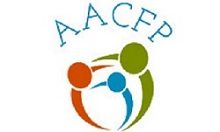Couple and family psychology (CFP) is a specialty in professional psychology that is focused on the emotions, thoughts and behaviors of individuals, couples and families in relationships and in the broader environment in which they function. CFP uses the broad conceptual foundations of Systems Psychology uniquely focused on both the understanding and the intervention in systemic relational systems (couples, families, groups, organizations and society in general). The unique focus on both systemic and relational elements of behavior is unique to CFP.
Specialized Knowledge
Systems approaches provide a basis for identifying common relational processes that exist in all families, regardless of culture or structure. A ‘process and functional’ (how systems function) focus across the boundaries of systems provides a more effective and client-centered match to treatment than the traditional focus on group characteristics.
Problems Addressed
Couple and family psychology addresses a broad array of clinical problems as well as relational problems including: alcohol and drug abuse; youth problem behavior/behavior problems; depression; youth hyperactivity; parenting and parent-child conflict; developmental disorders; schizophrenia; bipolar spectrum disorders; family relationships; sexual, physical or verbal abuse; medical issues; suicide; family relationships; couple relationship dissatisfaction; general mental health; intimate partner violence; infidelity; and youth violence and conduct problems.
Populations Served
CFP specialists work with individuals, couples, families and broader environmental systems, such as: individuals who have relationship issues (or whose individual issues affect their relational functioning); couples and families who struggle with daily functioning; substance abuse; mental health; and youth behavior problems. A couple and family psychologist is able to enrich or improve the functioning of non-clinical or normal couples to treat dysfunctional couples, individuals and couples from all socioeconomic status backgrounds as well as traditional and nontraditional couples at various stages of life (e.g., dating, premarital, marital, gay and lesbian, separated, divorced, interracial, inter-ethnic and interreligious), and larger systems such as communities and organizations to help with problems in functioning and communication (e.g., family owned businesses, school consultation, consultation with agency personnel, church consultation).
